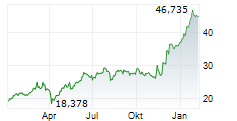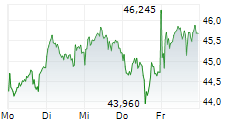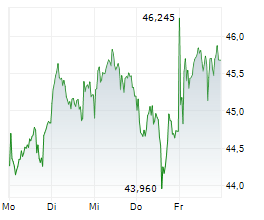- Collaboration focuses on developing a KRAS G12D inhibitor, complementing Bayer's precision oncology development portfolio in the areas of pancreatic, colorectal and lung cancer
- KRAS mutations occur in nearly 25 percent of human cancers, with the most prevalent and oncogenic KRAS (G12D) variant still lacking effective treatment options1
- Kumquat will receive up to a total payment of $1.3 billion, including upfront, clinical and commercial milestones, and additional tiered royalties on net sales
Not intended for UK Media
Bayer and Kumquat Biosciences Inc., a clinical-stage biotech company founded by pioneers of the KRAS pathway, today announced that they have entered into an exclusive global license and collaboration to develop and commercialize Kumquat's KRAS G12D inhibitor. Under the agreement, Kumquat is responsible for the initiation and completion of the Phase Ia study, while Bayer will complete development and commercial activities.
Kumquat received U.S. Food and Drug Administration (FDA) clearance of the investigational new drug (IND) for its KRAS G12D inhibitor in July 2025. Under the terms of the agreement, Kumquat will receive up to $1.3 billion, including upfront, clinical and commercial milestones, and additional tiered royalties on net sales. Kumquat retains an exclusive option to negotiate for participating in profit-loss sharing in the US.
"We are constantly evaluating innovative approaches to improve outcomes for patients, focusing on areas of high unmet medical need," said Juergen Eckhardt, M.D., Head of Business Development and Licensing at Bayer's Pharmaceuticals Division. "We look forward to collaborating with Kumquat, an accomplished team of experts with deep KRAS insights. Our intent is to explore the development of a potential new treatment option for patients, while further complementing Bayer's robust early precision oncology pipeline."
Oncogenic driver mutations, such as KRAS mutations, are changes in the DNA of genes that drive the development and growth of cancer. These mutations are often identified as key targets for cancer treatment, and their identification offers the opportunity to develop target-specific drugs. KRAS G12D mutations are found most frequently in 37 percent of pancreatic ductal adenocarcinoma (PDAC), 13 percent of colorectal cancer and 4 percent of non-small cell lung cancers.2 PDAC is the most common type of pancreatic cancer (accounting for 85 percent of cases) and remains one of the most difficult tumors to treat, with patients having few treatment options beyond chemotherapy and the five-year survival rate being less than 10 percent.3 Pancreatic cancer is the sixth leading cause of cancer-related death worldwide.4 The incidence continues to rise annually, with projections indicating a 95.4 percent increase in new cases by 2050, potentially reaching a total of 998,663 new cases globally.4
"KRAS mutations are crucial for cancer development and can be targeted with specific therapies in a more selective manner," said Dominik Ruettinger, M.D., Ph.D., Global Head of Research and Early Development for Oncology at Bayer's Pharmaceuticals Division. "KRAS mutations occur in nearly 25 percent of human cancers, yet the most prevalent and oncogenic KRAS (G12D) variant still lacks effective treatment options. We look forward to exploring the investigational KRAS G12D inhibitor, which targets a highly relevant signaling pathway that promotes tumor growth and survival."
"Since pioneering the direct targeting of KRAS G12C mutation over a decade ago, we have continued to discover innovative strategies to target other KRAS mutants, including KRAS G12D," said Yi Liu, Chief Executive Officer of Kumquat. "Advancing our novel KRAS G12D asset into the clinic reflects our commitment to delivering durable therapies for KRAS patients suffering from deadly malignancies such as pancreatic, lung and colorectal cancers. This collaboration with Bayer validates the strength of our platform and the potential of our KRAS G12D candidate to address long-standing unmet needs in oncology. We are thrilled to collaborate with Bayer, who shares our vision and strategy for realizing the benefit of small molecule-based transformative treatments. While advancing optimally our KRAS G12D program through the clinic, this collaboration provides Kumquat the financial resources toaccelerate its broader clinical pipeline for long-term value, and position Kumquat to deliver life-changing medicines and achieve sustained growth in the coming years."
About Kumquat Biosciences
Kumquat Biosciences is a privately held drug discovery and development company committed to creating life-changing medicines for cancer patients. The company focuses on translating breakthrough science into first-in-class therapeutics. Kumquat brings together an accomplished team and distinguished scientific founder with a proven track record of innovative oncology drug discovery and development. The company launched in 2019 and was funded by OrbiMed, HSG, EcoR1, Lilly Asia Ventures, Roche Venture Fund, and Boxer Capital, and previously entered two major collaborations with Eli Lilly and Takeda. For more information, please visit www.kumquatbiosciences.com.
About Bayer
Bayer is a global enterprise with core competencies in the life science fields of health care and nutrition. In line with its mission, "Health for all, Hunger for none," the company's products and services are designed to help people and the planet thrive by supporting efforts to master the major challenges presented by a growing and aging global population. Bayer is committed to driving sustainable development and generating a positive impact with its businesses. At the same time, the Group aims to increase its earning power and create value through innovation and growth. The Bayer brand stands for trust, reliability and quality throughout the world. In fiscal 2024, the Group employed around 93,000 people and had sales of 46.6 billion euros. R&D expenses amounted to 6.2 billion euros. For more information, go to www.bayer.com.
Find more information at https://pharma.bayer.com/
Follow us on Facebook: http://www.facebook.com/bayer
ak (2025-0140e)
Forward-Looking Statements
This release may contain forward-looking statements based on current assumptions and forecasts made by Bayer management. Various known and unknown risks, uncertainties and other factors could lead to material differences between the actual future results, financial situation, development or performance of the company and the estimates given here. These factors include those discussed in Bayer's public reports which are available on the Bayer website at www.bayer.com. The company assumes no liability whatsoever to update these forward-looking statements or to conformthem to future events or developments.
1 Cox AD, Fesik SW, Kimmelman AC, Luo J, Der CJ. Drugging the undruggable RAS: Mission possible? Nat Rev Drug Discov. 2014 Nov;13(11):828-51. doi: 10.1038/nrd4389. Epub 2014 Oct 17. PMID: 25323927; PMCID: PMC4355017.
2 Herdeis L, Gerlach D, McConnell DB, Kessler D. Stopping the beating heart of cancer: KRAS reviewed. Curr Opin Struct Biol. 2021 Dec;71:136-147. doi: 10.1016/j.sbi.2021.06.013. Epub 2021 Jul 22. PMID: 34303932.
3 Tonini V, Zanni M. Pancreatic cancer in 2021: What you need to know to win. World J Gastroenterol 2021; 27(35): 5851-5889 URL: https://www.wjgnet.com/1007-9327/full/v27/i35/5851.htm
4 Leiphrakpam PD, Chowdhury S, Zhang M, Bajaj V, Dhir M, Are C. Trends in the Global Incidence of Pancreatic Cancer and a Brief Review of its Histologic and Molecular Subtypes. J Gastrointest Cancer. 2025 Feb 24;56(1):71. doi: 10.1007/s12029-025-01183-2. PMID: 39992560.
View source version on businesswire.com: https://www.businesswire.com/news/home/20250812240388/en/
Contacts:
Bayer Global Media Contacts:
Oliver Renner, phone +49 172 3283112
Email: oliver.renner@bayer.com
Derin Denham, phone +1 973 610 7324
Email: derin.denham@bayer.com
Bayer US Media Contact:
Elaine Colon, phone +1 732 236 1587
Email: elaine.colon@bayer.com
Kumquat Media Contact:
Julia Alioto, phone +1 858 214 2756
Email: prnews@kumquatbio.com




